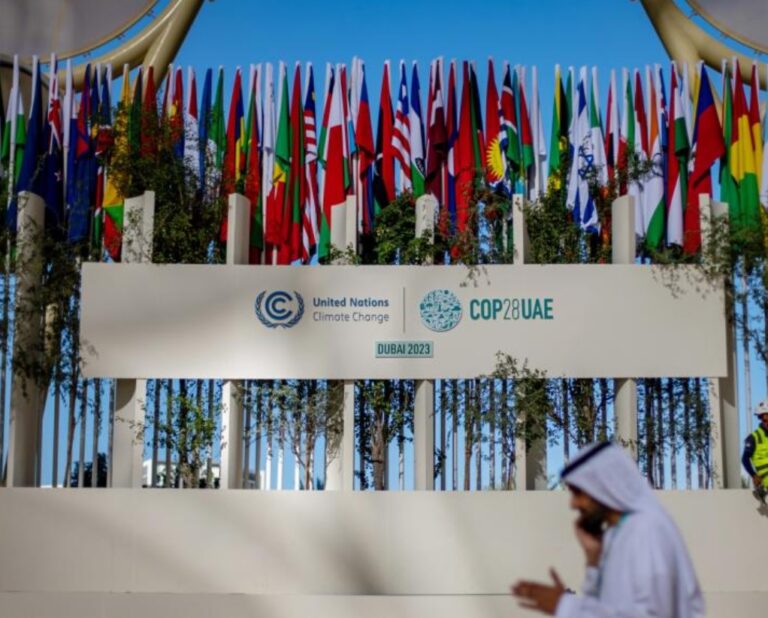Dubai, Dec. 13, 2023 – It is called “transition away” and is the draft climate agreement that arose after a night of protracted negotiations among countries gathered in Dubai for COP28 that reached consensus among 200 delegates.
The compromise calls on the world’s states to “transition away from fossil fuels” with the goal of achieving “carbon neutrality by 2050” and insists that action must be accelerated over the next decade.
But the phrase about which there has been so much discussion in recent days, the now-famous “phase-out” of fossil fuels that had not gained the necessary consensus during the very long discussions, does not appear. However, in the judgment of UAE oilman and Minister of Industry Sultan Al Jaber, chairman of Cop 28, it is a “historic agreement.”
Table of Contents
Transition from fossil fuels by 2050
The world will have to make “a transition away from fossil fuels by 2050“. This is the “deadline” set by the Cop28 understanding.
Twenty-one pages emphasizing the need to find a solution to global warming by accelerating the transition away from fossil fuels “in this crucial decade.”
The English term “transition away is ambiguous and subject to interpretation,” experts acknowledge. The date is there but it is unclear whether by this deadline, crucial according to the climate battle calendar, countries will have to have completely abandoned their dependence on fossil energy.
The key word is “transition”
A downward compromise, at first glance, that tries to hold together positions that are in many ways irreconcilable. But one that could mark, however faintly, the beginning of the end of the fossil fuels era because for the first time the words “fossil fuels” would enter a final text. They are unlikely to come out later.
The article that has been the focus of attention is article 28, the one on fossil fuels. That talks about transitioning away from fossil fuels in energy systems, in a just, orderly and equitable manner, accelerating action in this critical decade.
So as to achieve net zero emissions by 2050 in keeping with the science. Seeking a compromise between divergent needs, a new expression is used. Words are important in the negotiations, emphasizing the concept of transition from the previous version, where the focus was on reducing production and consumption.
A compromise to try to get oil-exporting countries, led by Saudi Arabia, on board as well, from which strong opposition had come in recent days. The text calls for accelerating climate action in this decade, called critical, to achieve carbon neutrality in 2050, according to the dictates of science.
No differentiated steps
Little or nothing is said about a differentiated approach to the energy transition, one of the key demands of countries in the Global South. The transition to renewables can be traumatic, and cause socioeconomic disruption, argues a large group of states.
And weak language on climate crisis adaptation activities, with no cogent time limits. Little clarity on terms whose meaning is not clearly definable (and therefore, to some extent, challengeable). Such as “transformative adaptation” and “maladaptation avoidance.”
Renewables
The new draft retains the reference to the need to triple renewables and double energy efficiency by 2030, one of the key outcomes of the early days of Cop28.
Paragraph 30 recognizes that the cost of low-emission technologies has fallen significantly over the years due to innovation and economies of scale. And it emphasizes the need to continue with the downward trend in cost and availability.
Methane and nuclear
On this item the Cop 28 agreement is weak. Reducing this climate-altering gas with 28 times the warming potential of carbon dioxide is only mentioned among other greenhouse gases. Instead, it is a key policy to rapidly reduce emissions.
A large chunk comes from livestock farms. But methane leaks are also there during mining and hydrocarbon transport processes. And here we can see another reflection of the compromise being sought.
Nuclear enters the text for the first time, following the agreement of twenty countries in recent days to triple power by 2030.
Read also: Carbon Neutral, Net Zero, and Climate Positive: what are the differences?












